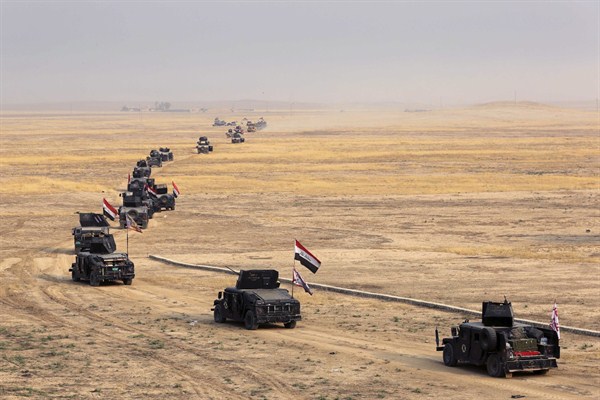As the battle to retake Mosul from the Islamic State proceeds, the stakes for Iraq’s neighbors vary. Although victory is still a ways off, the outcome in Mosul will more likely entrench existing regional dynamics than change them.
Last week, I looked at the possible upside for Iraq should it successfully recapture Mosul, as expected. There will be humanitarian costs and concerns about blowback from the Islamic State in and outside Iraq, but the Iraqi state and Prime Minister Haider al-Abadi will be the main winners. That is, if Baghdad keeps the Shiite militias that are helping retake the city in check and uses the victory to advance reconciliation with Iraq’s embattled and traumatized Sunni population.
Turkey is the most involved of Iraq’s neighbors in the Mosul campaign, and its role will continue to be both disruptive and supportive, given Turkey’s complicated engagement in northern Iraq. While the Turks generally share the goal of defeating the Islamic State, their participation is motivated more by other national interests and concerns. Iran so far is a minor player and may not reap any big rewards, despite the fact that some observers insist that any win for the Shiite-led government in Baghdad is by definition a win for Tehran. Other neighbors—Jordan, Saudi Arabia and Syria—should welcome the return of Mosul to government control, but their fraught relations with Iraq may cloud their judgment.

